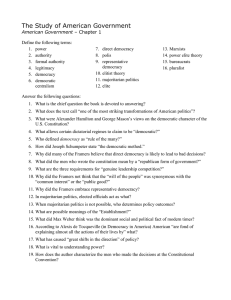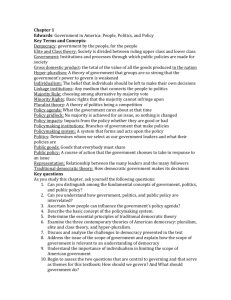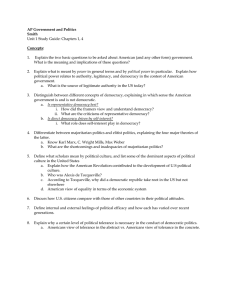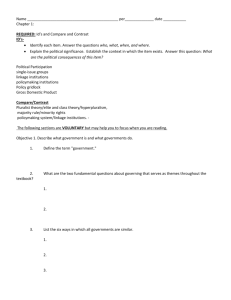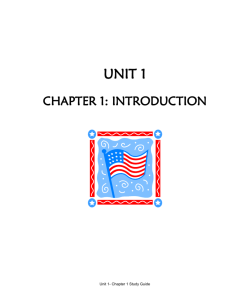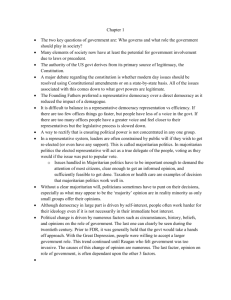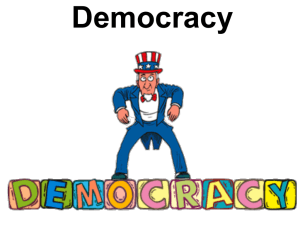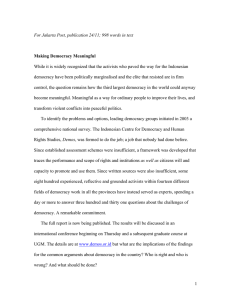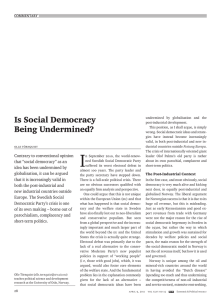Wilson Chapter 1
advertisement
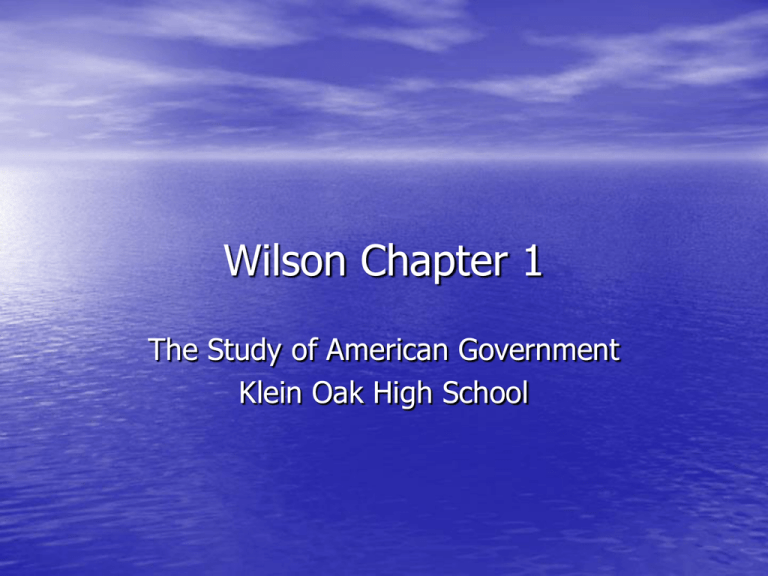
Wilson Chapter 1 The Study of American Government Klein Oak High School What is the chief question the book is devoted to answering? What does the text call “one of the most striking transformations of American politics”? What were Alexander Hamilton and George Mason’s views on the democratic character of the U.S. Constitution? What allows certain dictatorial regimes to claim to be “democratic?” Who defined democracy as “rule of the many?” How did Joseph Schumpeter state “the democratic method.” Why did many of the Framers believe that direct democracy is likely to lead to bad decisions? What did the men who wrote the constitution mean by a “republican form of government?” What are the three requirements for “genuine leadership competition?” Why did the Framers not think that the “will of the people” was synonymous with the “common interest” or the “public good?” Why did the Framers embrace representative democracy? In majoritarian politics, elected officials act as what? When majoritarian politics is not possible, who determines policy outcomes? What are possible meanings of the “Establishment?” What did Max Weber think was the dominant social and political fact of modern times? According to Alexis de Tocqueville (in Democracy in America) American “are fond of explaining almost all the actions of their lives by” what? What has caused “great shifts in the direction” of policy? What is vital to understanding power? How does the author characterize the men who made the decisions at the Constitutional Convention? power authority formal authority legitimacy democracy democratic centralism direct democracy polis representative democracy elitist theory majoritarian politics elite Marxists power elite theory bureaucrats pluralist The End
